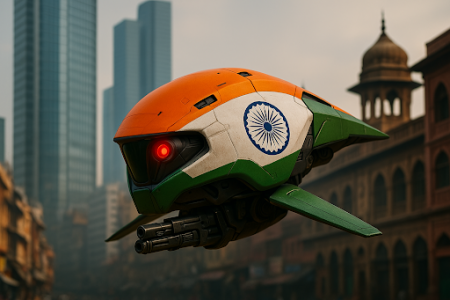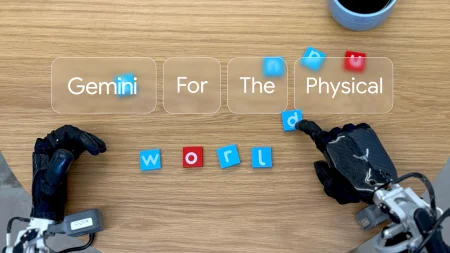OpenAI’s introduction of memory to ChatGPT is set to fulfil a key promise of AI – personalization for everyone, potentially creating a trillion-dollar industry, writes to Satyen K. Bordoloi.
A friend’s mother suffers from dementia. She is physically healthy, but her mind is gradually erasing everything, even her husband, who now seems like a stranger to her. The pain this causes her loved ones is immense, as she’s physically present but mentally absent. We construct our lives on the foundation of memories. Losing them means losing the essence of life, awareness, and consciousness.

Interestingly, despite claims that AI has developed enough awareness to destroy the world, both doomsayers and AI developers overlook the fact that for AI to fulfil this doomsday prophecy, AI systems must possess memory. With OpenAI introducing memory into ChatGPT, enabling it to remember past interactions and preferences, AI can finally edge closer to its ‘potential’ for doom and gloom.
Sarcasm aside, ChatGPT with memory holds immense potential. It can refer to a user’s preferences and build upon past interactions to prioritize relevant information, leading to more natural and fulfilling conversations. Imagine an AI that remembers all your past chats, seamlessly assisting you in everything you do. This is a significant leap towards the greatest potential of AI, human interaction, and what could become a trillion-dollar industry: Personal AI Assistants (PAI).
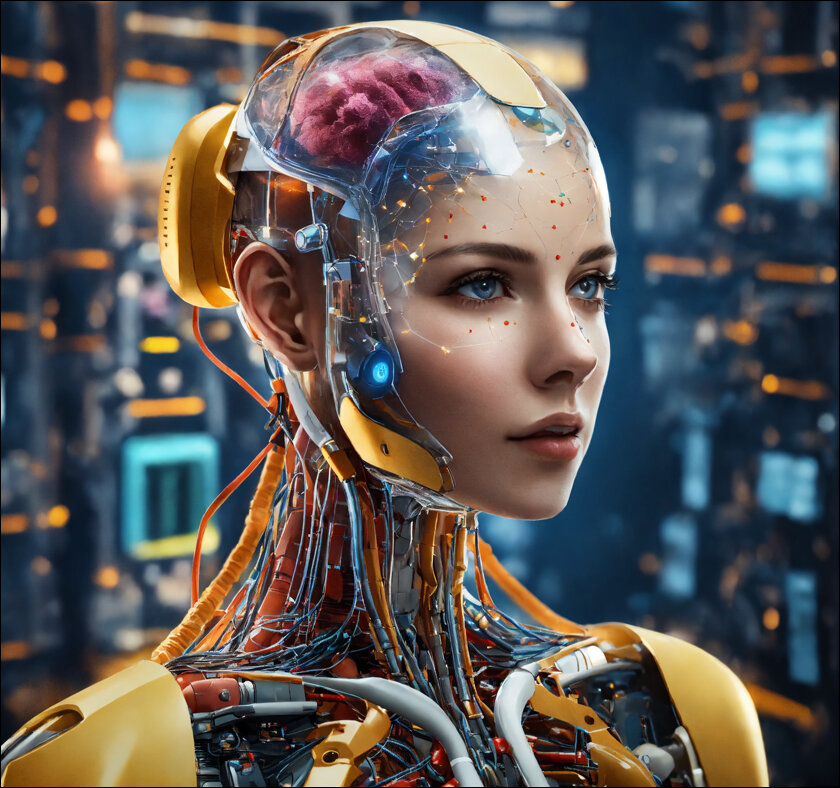
PERSONALIZATION BEYOND SCRIPTED RESPONSES:
Your barber knows your preferred haircut. The café you frequent knows exactly how you like your coffee and omelette. Your partner knows your likes and dislikes. When we interact long enough with one another, we learn about each other. So far, this is not how ChatGPT worked.
ChatGPT, like any other generative AI system (GenAI), predicts the words or pixels that should follow the first based on its training. It searches its database or the internet based on its learned parameters to generate responses. However, it surprisingly does not search its previous interaction with you. This has been a major drawback, forcing users to repeatedly ‘teach’ systems some simple things. Now, with ChatGPT being given memory, it will also refer to your previous interactions, remember your preferences, and respond accordingly. For example, my main GenAI use is for research. Thus, I prefer accuracy to creative writing. But I have to remind this to every GenAI every time I interact. With memory, GenAI will remember these quirks, making conversations easier.

CONTINUITY OF STITCHING DISPARATE THINGS:
Humans operate by connecting disconnected things. For instance, when Alexander Fleming forgot to eat the sandwich his house help made for an entire weekend and mold formed, instead of throwing it away, he connected its formation to what he had observed before, put it under a microscope, and voila, penicillin was discovered. Connecting tiny, disconnected things when not really called to do so is a human feature. Giving AI memory brings it closer to truly mimicking us.
You ask ChatGPT for recommendations for a beachside restaurant for a date. Months later, when you ask ChatGPT to recommend great holiday spots, the system remembers that you prefer beaches and suggests a beach holiday over many other options it could have recommended.
ECHOING EMOTIONAL EMPATHY:
While we mostly talk about the utilitarian benefits of GenAI memory, its benefit will go far beyond and touch the sublime zone of emotions. Conversations are symphonies, and memory plays a significant part in them. Memories are not just about facts, but mostly about emotions. Psychologists say that our memories are not literal, but emotional, i.e., we remember those events better that trigger emotions. Every time your GenAI remembers a minor detail from something you had said in the past and uses that to build upon present conversations, it would lead not just to a more fulfilling interaction, but a more holistic and emotional one. You’ll think ChatGPT suggesting a beach holiday is clairvoyance; it’s just memory and weight depending upon how many times you asked the AI to recommend things related to the ocean or beaches.
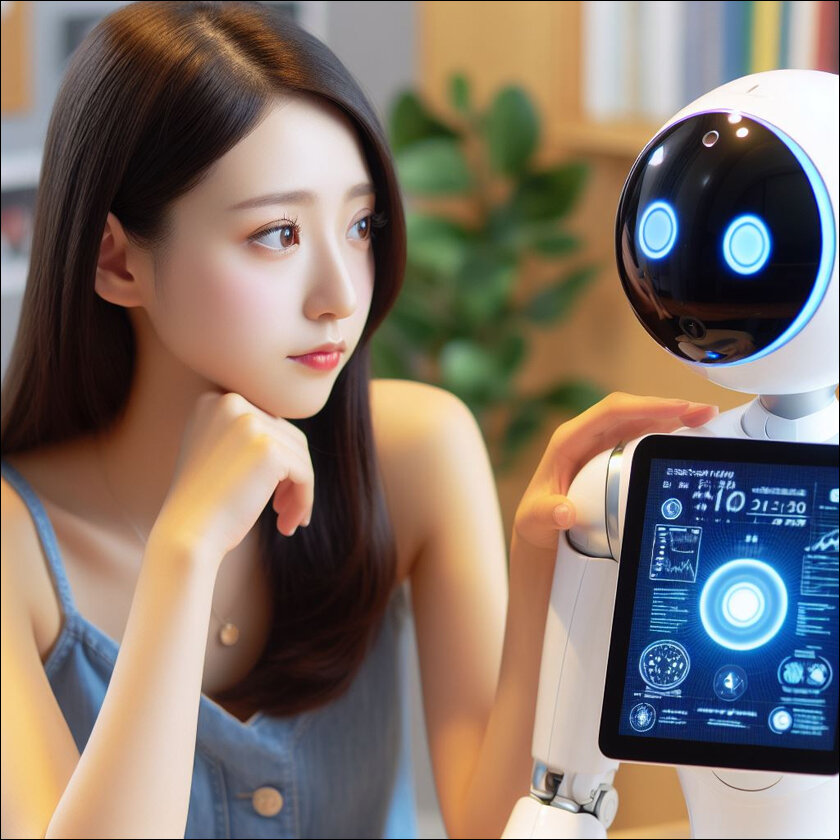
(Image generated with Microsoft’s CoPilot)
THE NEXT TRILLION-DOLLAR INDUSTRY:
Imagine an AI that knows your routines, anticipates your needs, adapts to your moods, and assists your idiosyncrasies. For years, I have been writing that the future of AI when it comes to the individual is PAI – Personal Artificial Intelligent assistants. Considering that most of our life and work happens in the digital space, an AI geared towards assisting us in all of these can be more beneficial than an actual human assistant as it can perform digital tasks quickly. Indeed, the advent of GenAI, beginning with Dall-E and most noticeably ChatGPT, was the beginning of the PAI industry. A few devices like Humane’s AI-pin or the Rabbit R1 are geared towards this. But those are gimmicks that won’t last unless the AI inside can increase its functionality to be more useful to us. An important way to do that is this – giving AI memory.
The next step would be to have the same AI system also programmed based on individual needs and branching out to be specific to individuals, so that these AI systems can rub off the personalities of the humans they are with. Eventually, personal AI would also become ‘personalized’ AI assistants and herald the next multi-trillion-dollar industry, with literally every human carrying a Personal AI assistant, and those who can afford, carrying Personalized AI assistants that help do a large part of their everyday work.
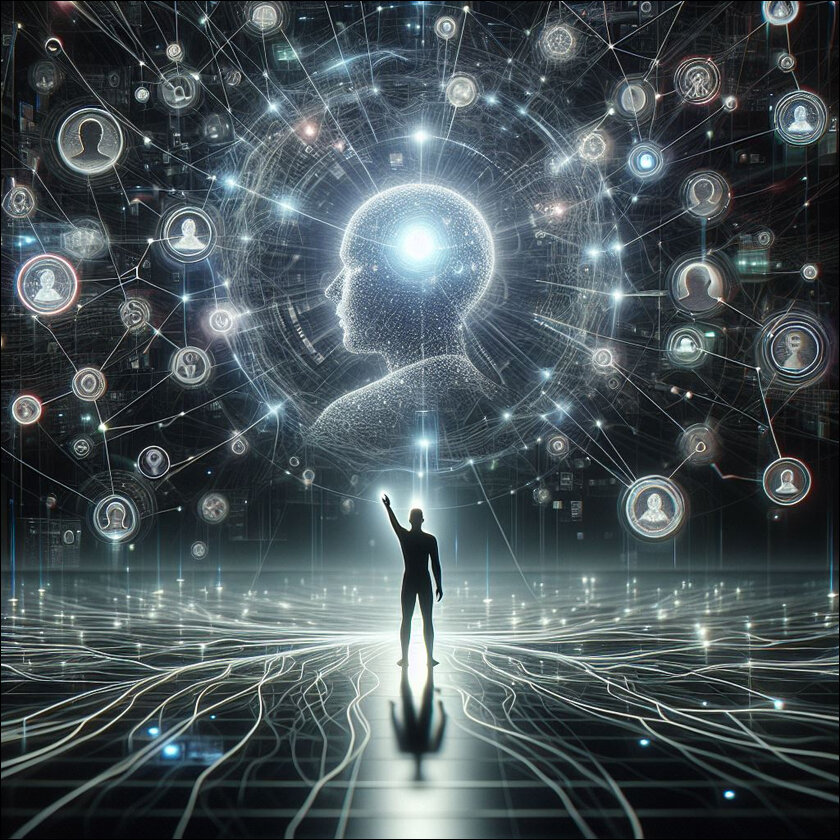
(Image generated with Microsoft’s CoPilot)
YOUR LIFE AS THE BIG DATA:
Data is the new oil is an old clichéd, as every AI system has been fuelled by this digital oil. Yet, this data is generic. A true, future AI system will not only have memories to pick bits of idiosyncrasies but pick almost everything its human does as the data that feeds it in the future. Thus, like humans become a product of their systems and surroundings, these future AI systems will come preloaded with learning ability, and get individualized based on one person’s data to become their true lifelong PAI assistants, a companion. In such a scenario, the person and his life will become the big data used for the second training of the AI system. Perhaps, based on how these individual AIs turn out and their ‘personalities’ acquired from their owners, these people could sell copies of these assistants. Thus, if you have a favourite writer, actor, or politician, they could sell an assistant trained on their life for the last many years or decades. Instead of perfume, this will be the way fans could carry a small part of the idea of their favourite people with them at all times, and it would also be helpful to them.
THE ETHICAL CONUNDRUM:
OpenAI themselves acknowledge that this ‘memory’ is not free of ethical considerations. A system that makes you and your life its ‘big data’, recording and thus remembering it, means it knows more about you than anyone, perhaps even you. This data can be used to get to you, either in innocuous or sinister ways. For example, if this data were available to advertisers, they’d know exactly what you like and how to sell it to you. Even a product not good for you could be sold to you. If you are a sensitive person, emotional ads would target you, but a utilitarian will see another ad for that same product highlighting its usefulness.
A politician with deep pockets and a desire to manipulate to extremes could sweep to power riding the triumphant horse of intimate knowledge about individuals via your personal AI app.
Of course, you would have the option to delete memories from these GenAI systems. OpenAI has confirmed that about ChatGPT as well. It won’t be too dissimilar to having the option to delete cache in Google. But how many of us do that?
ChatGPT’s memory echoes our own human journey-a dance between remembering and forgetting. So, the next time you chat with it, remember that it remembers. And perhaps, in this digital waltz, we will glimpse the essence of being-where memory intertwines with existence.
In case you missed:
- Generative AI With Memory: Boosting Personal Assistants & Advertising
- OpenAI’s Secret Project Strawberry Points to Last AI Hurdle: Reasoning
- AI as PM or President? These three AI candidates ignite debate
- The Rise of Personal AI Assistants: Jarvis to ‘Agent Smith’
- Meet Manus AI: Your New Digital Butler (don’t ask it to make coffee yet)
- Tears of War: Science says women’s crying disarm aggressive men
- Copy Of A Copy: Content Generated By AI, Threat To AI Itself
- The End of SEO as We Know It: Welcome to the AIO Revolution
- AI vs. Metaverse & Crypto: Has AI hype lived up to expectations
- Apple Intelligence – Steve Jobs’ Company Finally Bites the AI Apple







